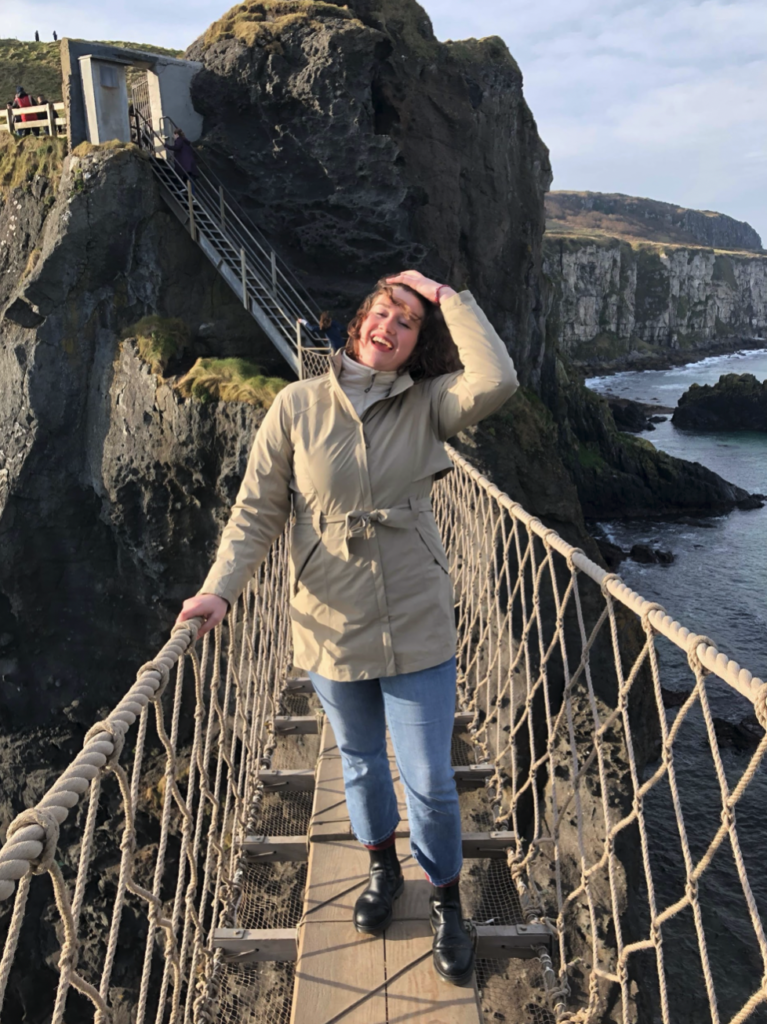Ethical Engagement with Locals: Peace and Conflict in Post-War Northern Ireland


From the moment I decided to do a semester abroad in college, I knew I wanted to go to Belfast. Northern Ireland has such a unique culture that fascinated me and presented me with big questions like: How do people with conflicting political and religious stances coexist so closely? How has reconciliation worked in Northern Ireland—and how has it failed? What deeply rooted divisions still exist in Belfast, and will these divisions always exist in their society? What peace initiatives exist in Northern Ireland to connect people across backgrounds through dialogue, poetry, art, storytelling, etc?
Ultimately, I chose IFSA to help me answer those questions because their program had the most supportive services for promoting students’ individual goals—however specific they are. My goals and dreams for my time abroad focused around unpacking religious conflict in an academic setting through completing my religion minor at Queen’s University Belfast. My IFSA coach helped me make my goals specific, measurable, and realistic for my academic and social success during my semester abroad. Through IFSA’s coaching and support on selecting classes, I was able to take an experiential learning course on the History, Politics, and Anthropology of Northern Ireland. This helped me to unpack the fullness of what peace and conflict mean to Northern Ireland and the multidisciplinary frameworks that are important in understanding how complicated it is. This class opened my eyes to different locations around the country that were impacted by the Troubles in Northern Ireland and empowered me to go see those places. One example was when I went to Derry/Londonderry with some other international students at Queens to learn about the Bloody Sunday Massacre. I was struck that day not just by the museums and tours of the charming, small town, but also by the stories I heard talking to locals about it. When trying to engage ethically with local people in Northern Ireland, I learned quickly that being sensitive to the language I use and the way I frame questions can be crucial. When I displayed my intention of learning and listening without judgment to understand the individual’s perspective, they were much more open in sharing.
Reflecting back now, something that came as a surprise to me was the way that individual conversations with local people sometimes aided my understanding of the breadth of complication in the Northern Ireland conflict. There were times that I learned more about the people’s experiences from talking to friendly folks in a pub than in a book or museum. I believe that THIS points to the quintessential value in studying abroad: you can hear something in a book and forget it, you can see something at a significant location for yourself and remember, but it takes EXPERIENCING a culture for yourself and starting a dialogue with people who are different from you to truly understand and develop into a well-rounded global citizen. This is what makes me most grateful for IFSA’s support throughout my semester abroad: they pushed me to experience the fullness of what a semester abroad can do for me academically, spiritually, and socially. Now, I still follow the storytelling communities and peace building agencies that I encountered during my semester abroad and am excited to return to them someday—maybe even as a grad student returning to Queen’s University!
Madeleine Ross is a social work major and religious studies minor at Luther College and studied abroad at Queen’s University Belfast in Spring 2019.